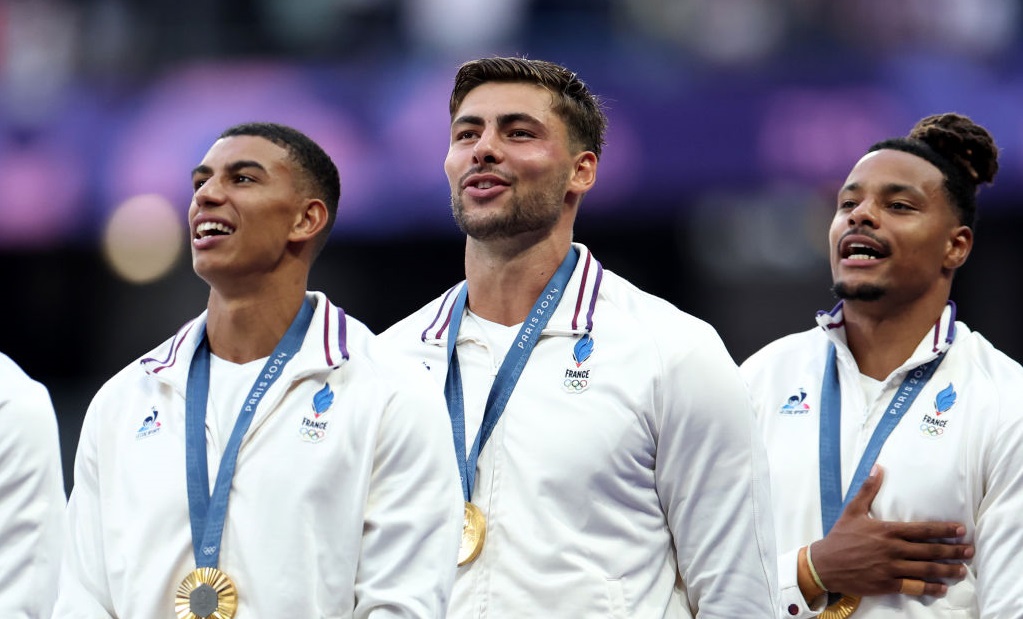Antoine Zeghdar: 'I don't really know how I'm going to do both'

Antoine Zeghdar’s career in rugby has been a whirlwind journey from the Top 14 as an outside back with Toulon and Castres to the pinnacle of Olympic gold with the French Sevens team. The 25-year-old’s path in rugby has been marked by ambition, versatility, and a commitment to his craft.
In an exclusive interview with RugbyPass, Zeghdar opened up about his experiences, the lessons he has learned along the way, and what the future holds for him in both sevens and fifteens rugby.
Beginnings at Toulon
Zeghdar began his professional career at Toulon, where he spent five years honing his skills and developing as a player.
“I started at Toulon and I was there for five years. The first two years I played in the younger teams. Then, when I was 18, I played as a pro and just trained with them.
“Having played there as a youngster and then as a pro was a bit special for me.”
Being around such high-calibre players at a young age played a crucial role in his development.
“I had the chance at Toulon of playing with some great players. At this time, there were players like Manu, Malakai Fekitoa, Sinckler and many others.
“When you’re young and you have the opportunity to train with those players, you just look at everything they do and try to learn everything from them.
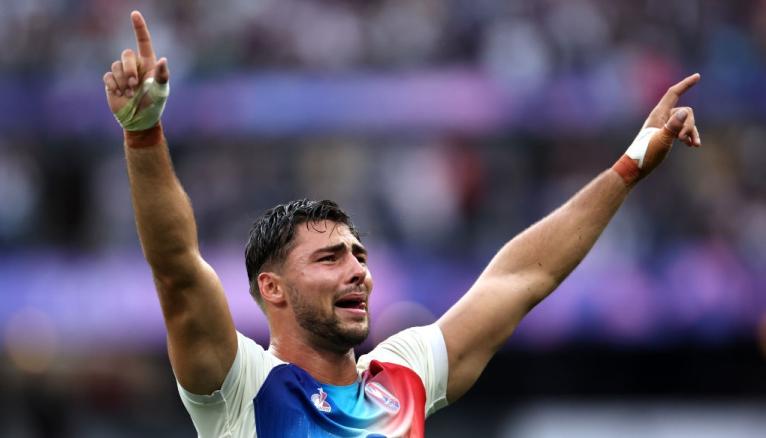
“I also had really good teammates when I was young. We won the French Championship three times, and playing alongside them allowed me to grow a lot. It was good times and good memories.”
This experience shaped his approach to the game and instilled in him the importance of hard work and perseverance.
The discovery of Rugby Sevens
Zeghdar’s introduction to rugby sevens came almost by accident.
“I discovered sevens when I was 19, during my year of playing under-20. I was with the French fifteens team for one of the tournaments because we had the Six Nations.
“I wasn’t with the group to begin with and they told me to do a camp with the French sevens team. At first I didn’t want to go there because I wanted to stick with fifteens, but I ended up liking it.”
Initially reluctant to switch from fifteens, Zeghdar quickly fell in love with the fast-paced nature of sevens rugby.
“They then sent me to play with the French team for the first time. My first tournament with them was in Las Vegas, and it was so cool. I loved playing sevens.
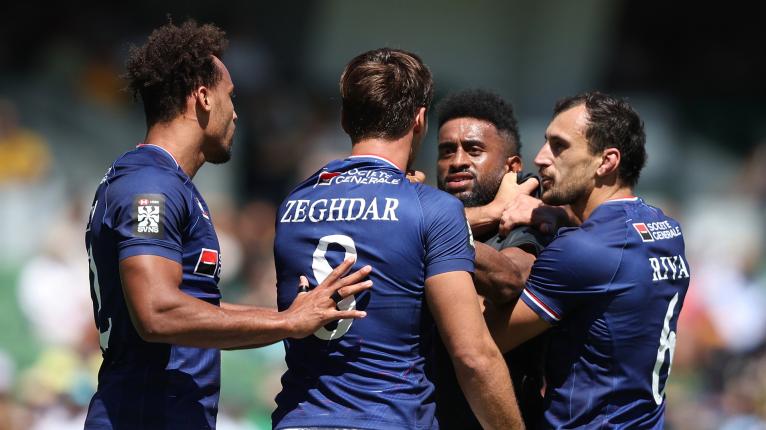
“The next week we went to Vancouver and for the first time in, I don’t know how many years we were in the final and we came second. I loved it and wanted to continue playing sevens with the objective of doing the Olympics.”
Zeghdar was immediately captivated by the sport’s unique demands and camaraderie.
The road to Olympic gold
Winning Olympic gold with the French Sevens team was the highlight of Zeghdar’s career so far. He attributes the team’s success to their close-knit nature and shared commitment.
“I think we were, and it’s obvious to say this, like a group of brothers. We love each other on the pitch and also off the pitch. We spend a lot of time together and I think this is one of the great qualities that our squad has.
“We are very close and complete as a team, I think everyone has to give 100% of themselves and that is also why we won Olympic gold.”
Playing in front of passionate home crowds was an unforgettable experience for Zeghdar.
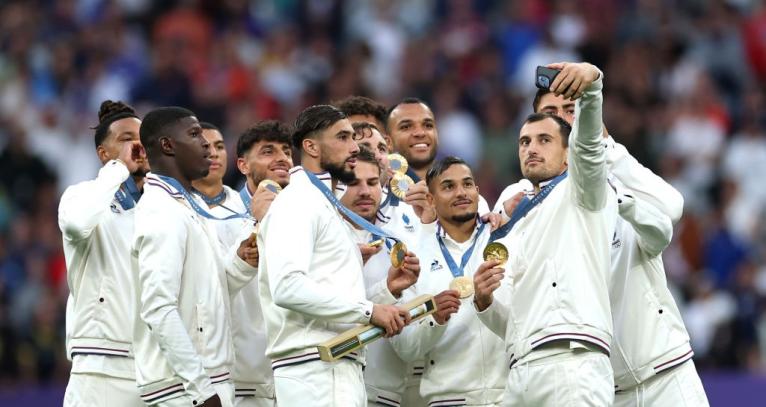
“I think before the Olympics we thought that it would be a lot of pressure for us but, it seemed like everybody was waiting for this event. As soon as we got on the field, it was crazy.
“The crowd was noisy and all cheering for us. So, I think it was a motivation for us”
The presence of stars like Antoine Dupont also added to the dynamic.
“Yes, of course the dynamic changed because Dupont is one of the greatest players in the world. As soon as he got there, he joined in with us. It was a special moment because he has this aura of a person who wins a lot of things.
“Every time you play with someone like that, you want to be the best player you can be. I think all the other players looked at him like this and played 100 per cent with him.
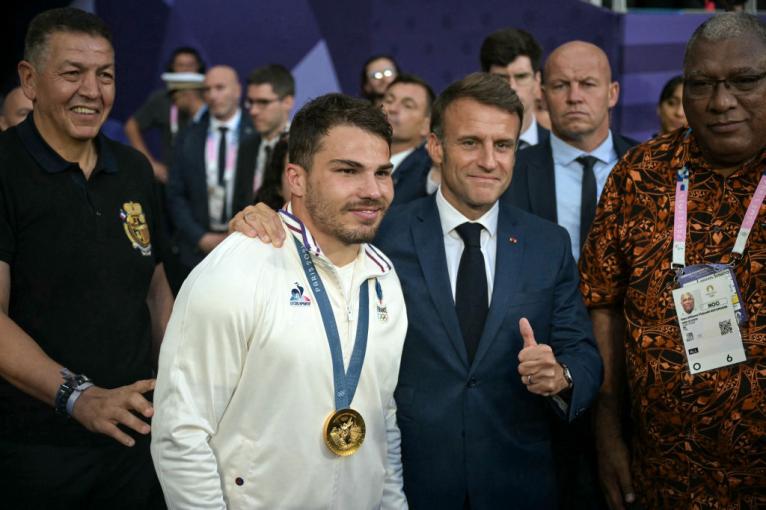
“He’s a very humble guy, and even if it was his first step into the sevens series, he had no ego and asked us questions about if his position was good. He didn’t have any ego, considering he’s one of the greatest players in the world right now.
“It was funny to get some questions from him, I think he wasn’t on the team in the first tournament, so he learned very fast.”
The impact of Olympic success on rugby in France
Zeghdar believes that France’s success at the Olympics has sparked a new wave of interest in rugby, particularly sevens.
“I think there are a lot of people, especially in France who watched the Olympics sevens and I received a lot of messages from people who told me that they didn’t really know rugby at all, but they really enjoyed watching the sevens.
“They even cried for us at the end when we won. I think it’s put the sevens game in a new light and, I think it’s going to be really good for us.”
This exposure is expected to encourage more young people to take up the sport and help grow the sevens game in France ahead of the next Olympics in Los Angeles.
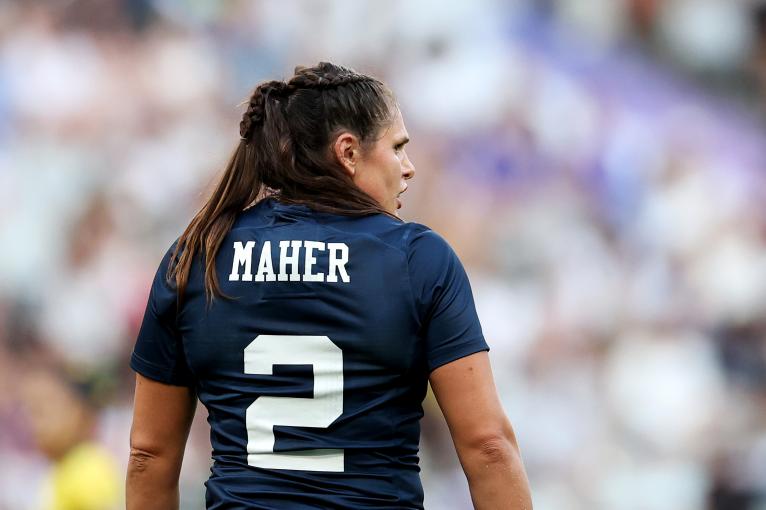
“Some young people will have watched the Olympics and perhaps they will be inspired to do rugby later. For the Olympics in LA, I hope people will want to watch and we can grow the sevens game even more.”
Reflecting on a multifaceted career
Zeghdar’s career spans both fifteens and sevens, but he admits that playing at the Olympics stands out.
“I think my favourite stadium is the Stade de France where we played the Olympics. I had the chance to play in that stadium with my Top 14 team, Castres in the final back in 2022. It wasn’t the same level of intensity as the Olympics.
“In the Olympics, people were crazy in the stadium, they loved that we’d won and it was so good having a lot of people cheering for us. So, I think my favourite level to play at professionally has been the Olympics.
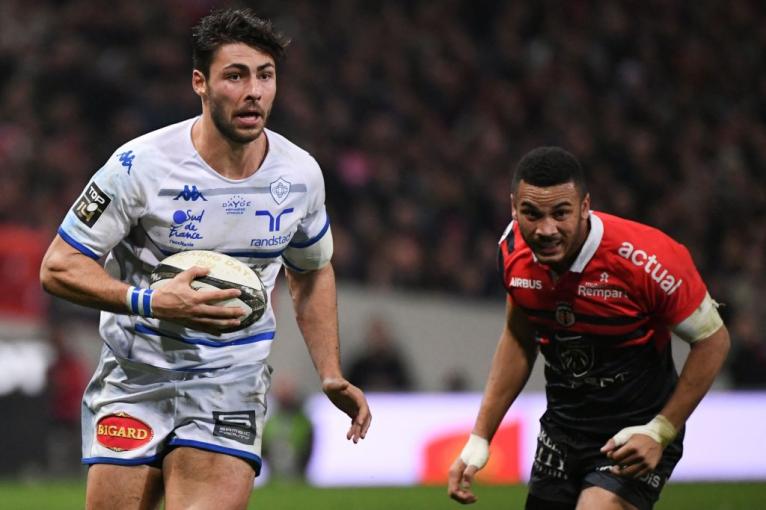
“I really wanted to play at the Olympics because we had previously not qualified at Tokyo. I think it’s something that we can put in the history books of French Rugby, winning gold at the Olympics.
“It’s been really special for me playing at the Olympics, so I hope that I will do more.”
However, he remains eager to return to the fifteens game, where he started his career.
“I’m also keen to get back to the fifteens. So, for now, I don’t really know how I’m going to manage to do both, but I hope I will find a way to do it.”
Expressing his desire to balance both formats moving forward.
The physical demands of Rugby Sevens
The transition between fifteens and sevens isn’t easy, according to Zeghdar.
“In rugby sevens, we have a lot more duals. You can touch the ball a lot more in fourteen minutes in the sevens game. Whereas in the eighty minute game of fifteens, you only touch the ball once or twice.”
Training for sevens involves a greater emphasis on speed and agility, with unique drills like dance lessons to improve rhythm and coordination.
“It’s really important to have speed and to work on your speed. During this year our coach arranged some dancing lessons for us, in order to have that rhythm in sevens and work together in tangent.
“The fifteens involves more contact and sevens is more about trying to create a collaboration in order to win.”
“I think it’s harder coming from fifteens to sevens because you don’t have the same cardio and more weight. As soon as you go into the sevens, you train for it and so you lose a bit of weight, which allows you to run faster and you develop better cardio as a result.
“For me, it’s easier going from the sevens to the fifteens rather than vice versa.”
Advice for the next generation
For younger players aspiring to follow in his footsteps, Zeghdar offers simple but powerful advice: “In professional sports, you have to make sacrifices, train hard, and work hard. It’s the bad side of our beautiful sport, but after all that hard work, you can have magical moments.
“I’d say just work hard, train hard, and have beautiful moments after.”
Looking ahead
As Zeghdar looks to the future, he remains determined to continue growing as a player and balancing his commitments between fifteens and sevens.
“For now, I don’t really know how I’m going to manage to do both, but I hope I will. I’m currently discussing with my club how we will manage this transition because I want to be fit for the French sevens team.”
Zeghdar’s story is one of dedication, versatility, and a love for the game. Whether on the pitches of the Top 14 or under the global spotlight of the Olympics, he continues to strive for greatness, inspiring a new generation of players along the way.
























